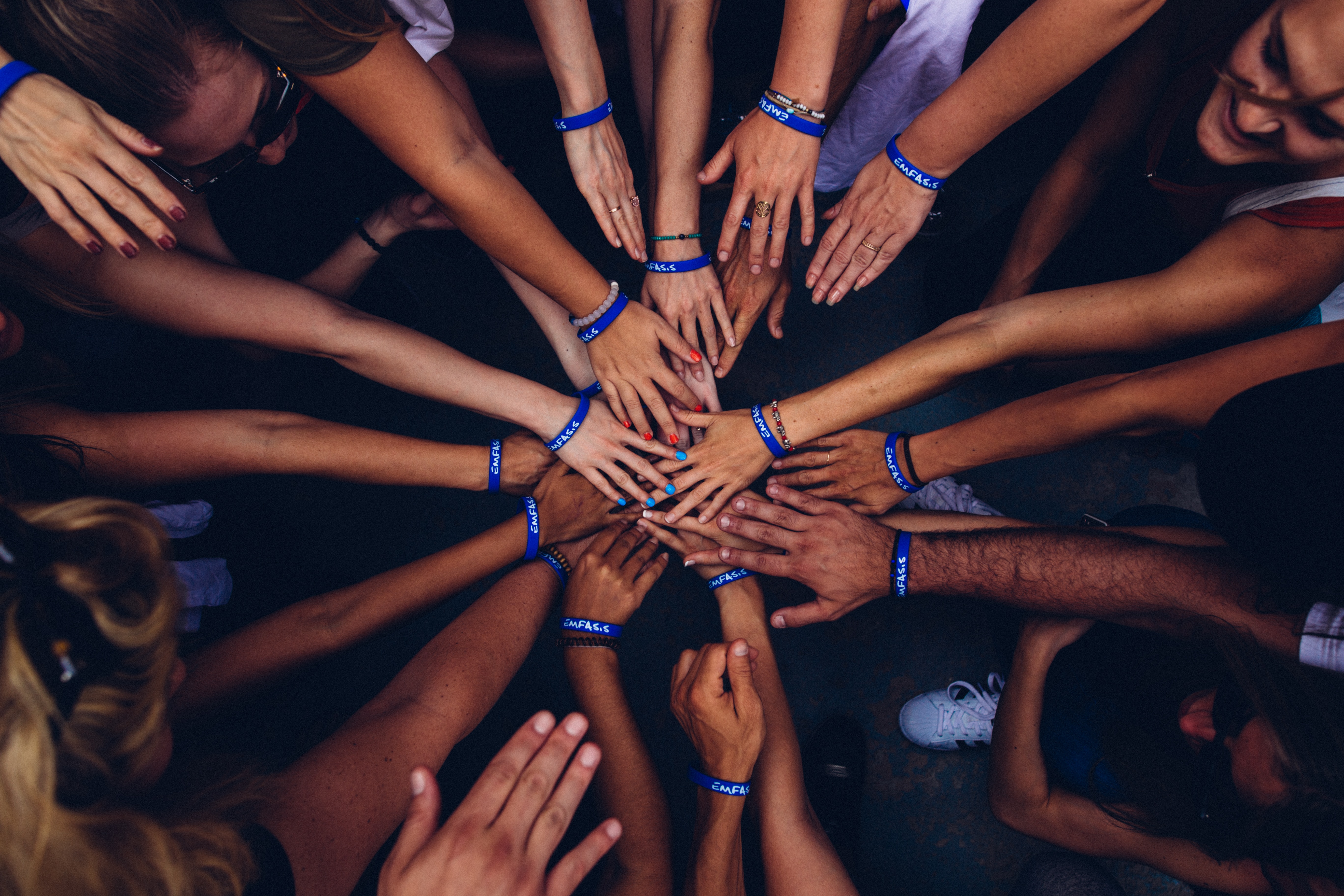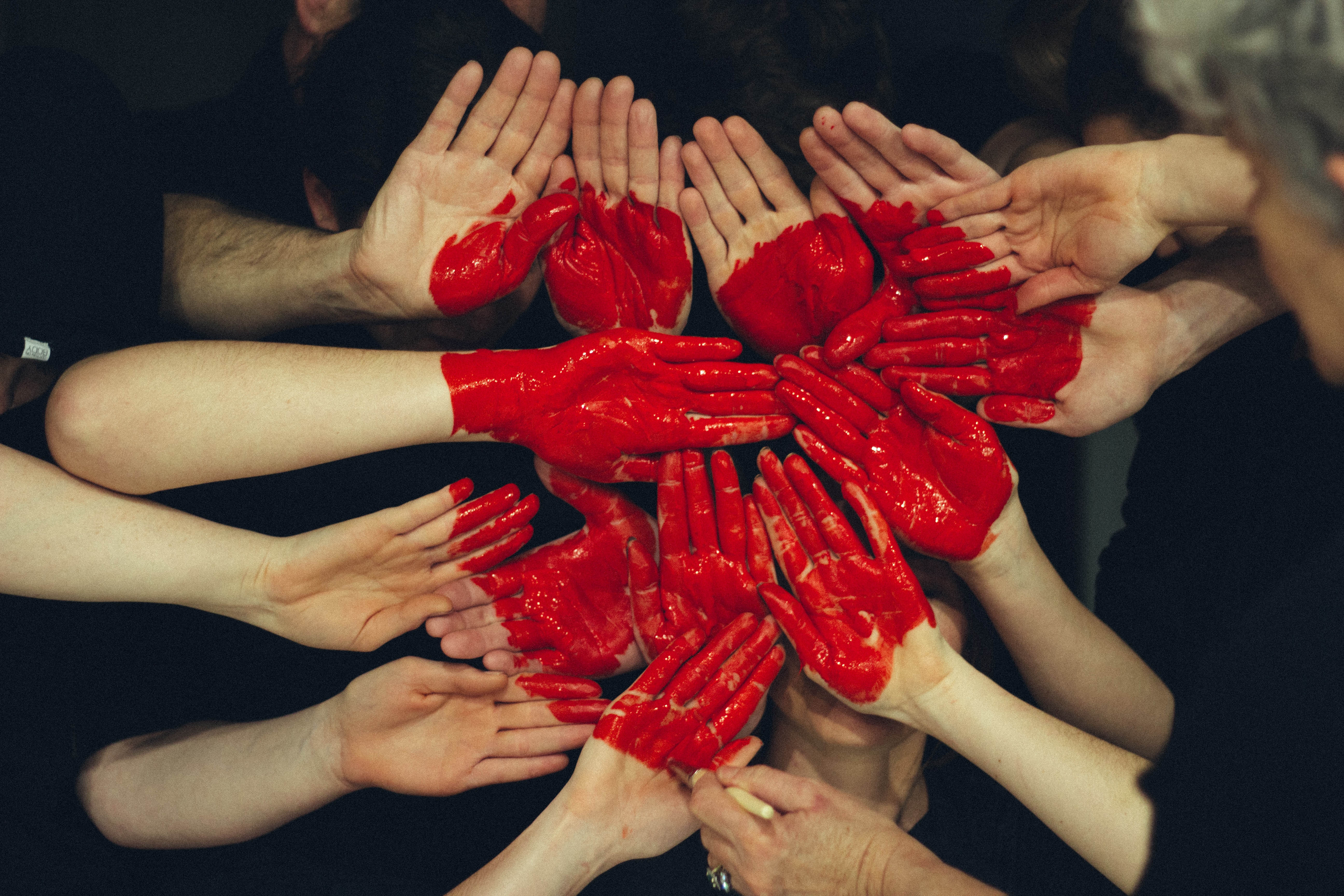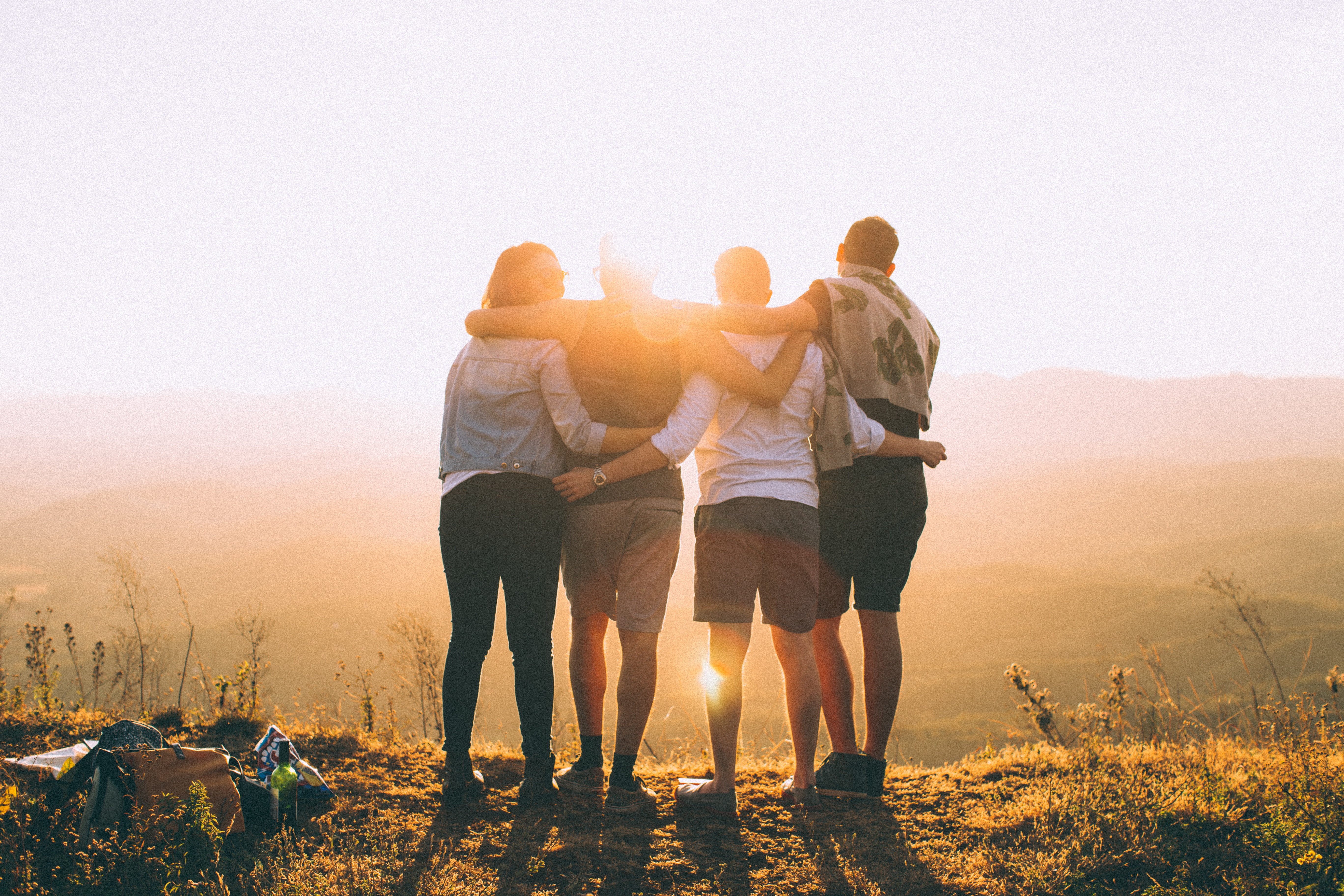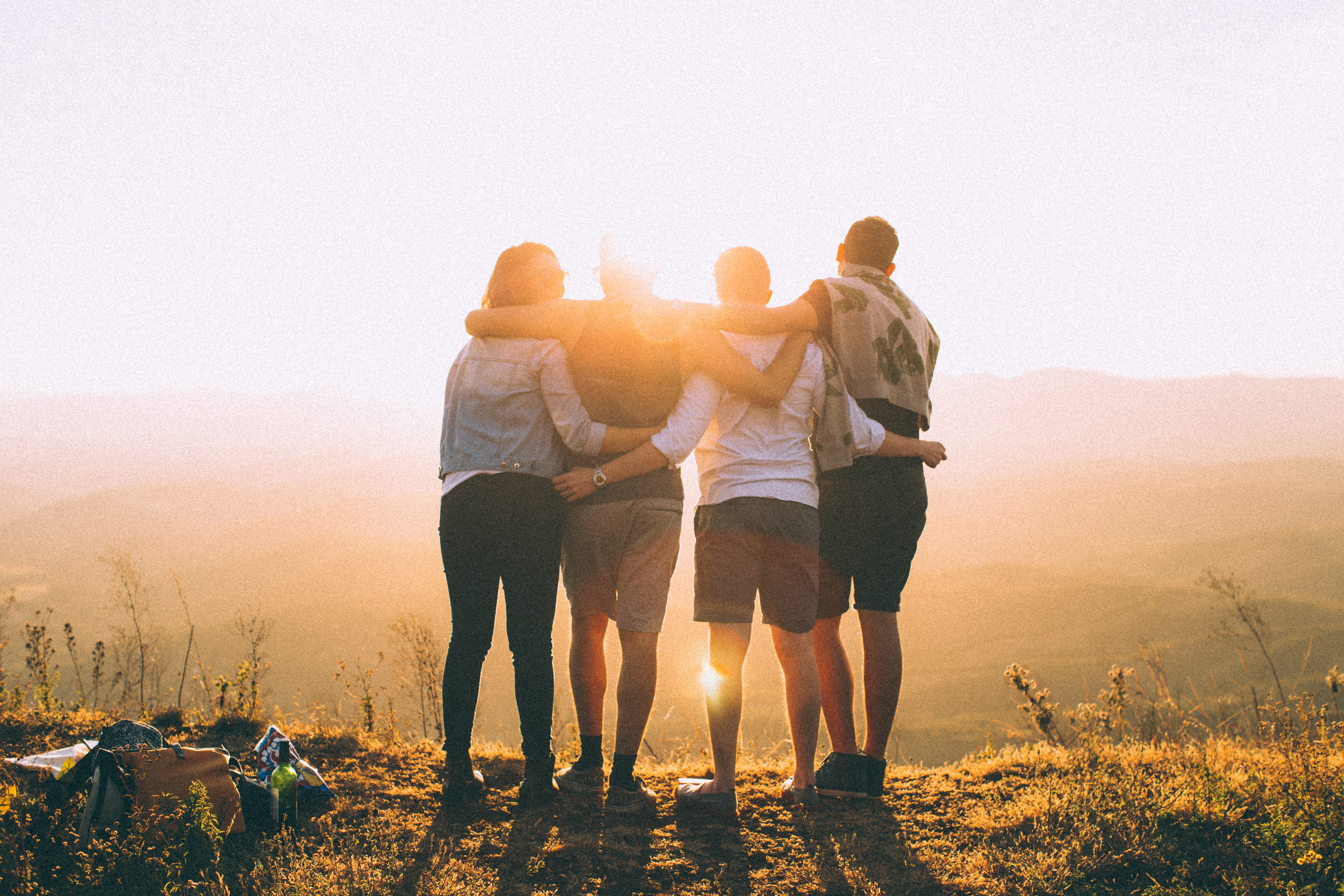We live in a time when we are more digitally connected but more intimately disconnected than we’ve ever been. We’re more inclined to be looking at our screens than into the eyes of another person.
But at the core of who we are, we all crave connection and belonging.
The desire to belong and be part of community is innate. The topics of community, connection and belonging hit home so deeply with me because of the struggles I’ve had feeling accepted, wanted, invited and included.
And I know I’m not the only one.
We’ve all had our share of some form of social rejection, loneliness or the sense that we don’t belong or fit in.
When we think we’re uncool, unwanted, timid, uninvited, “too much” or “not enough”, unpopular, soft-spoken or invisible, it’s hard to shift our mindset to believe anything else. We internalize it and assume it’s just who and how we are.
We become what we think.
All of those “un” words and phrases describe how I felt about myself for much of my life, beneath my seemingly confidant facade of accomplishment and achievement.
Each of us carries narratives throughout our lives that shape how we see ourselves and how we engage with the world around us. These narratives tell us what we are worthy of, what is possible, how the world sees us, and whether or not we belong.
Few of us stop to question whether the stories we tell ourselves about ourselves are true. We don’t pause to consider whether they’re based in reality or simply the product of fear, anxiety or what someone else projected onto us at some point in our lives. We continue to believe them, often to our own detriment.
The belief that we don’t belong or aren’t wanted is more damaging than we might realize.
The Science of Belonging
In a recent study published in Perspectives on Psychological Science, four factors were identified as having an impact on early death – air pollution, obesity, excessive drinking and loneliness.
According to the study, living with obesity increased the risk of early death by 20 percent, while living with loneliness elevated the risk of early mortality by a whopping 45 percent. Over 40 percent of Americans report feeling lonely, and that number goes up to 50 percent for CEOs.
When we feel rejected socially, the center of our brain that processes emotions – the amygdala – goes into overdrive. It’s as though our very existence is at risk when we are socially rejected. Levels of inflammation rise and our immune system is compromised to prepare us to fight the threat. In the case of social rejection, there’s rarely a physical threat to defend, yet our brain responds and experiences the hurt the same way it experiences physical pain.
We are starving for community and craving authentic, meaningful connection.
Connectedness is a universal human need and desire to belong, to feel like we are seen, heard, known and that we matter.
When we experience a sense of belonging and inclusion, we are living in a state of connectedness. We feel grounded, safe, and accepted. We are hardwired for connection and need it to survive and thrive.
That’s why feeling like we belong is so powerful…and healing.

“You Are So Wanted“
I’ve struggled to feel included and connected for much of my life, I’m grateful for the transformation I’ve experienced recently.
It happened on my 33rd birthday.
I was sitting in the living room of a friend’s house and we were sharing stories from childhood. I shared that I felt like I didn’t fit in for much of my childhood (shy, introverted, Catholic school kid who wasn’t Catholic, etc.). I talked about the postpartum depression my mom had after I was born. I wouldn’t latch and ended up colicky and malnourished for several weeks as an infant. I tied that experience and others to the narrative I carry about being “too much” for people.
As I continued telling the story, I remembered saying to my friends, “You know what’s funny? My parents have told me multiple times that they know the day I was conceived.”
One friend paused, let my comment sit for a moment, and then smiled at me and said, “Oh, Rachel, you were so wanted.”
In the minutes that followed, everything in me collapsed, as I let the weight of her words pass over me and sink into me. For my whole life, I’ve believed one reality to be true about my place in the world – that I will always have to fight to belong and to prove my worth and value.
But her truth cut through the story I had believed for so long. It offered a new reality.
I was always wanted.
Before I was born, I was wanted.
The same is true of you.
You were born to belong.
You are here because you were wanted. To paraphrase what Fred Rogers has said, “Someone loved you into being.”
Think about it: What limiting narrative have you carried into adulthood about who you are and whether or not you belong that needs to be “brought to trial” and questioned? What would happen if you believed something else about yourself?

4 Ways to Connect
Over the past two years, as a result of moments like those, I’ve experienced a profound shift in my sense of belonging and connection.
It’s our very nature to be connected; it’s a fundamental element of who we are as human beings. We are born as a result of two people physically and emotionally connecting. We are transformed when we deeply connect with ourselves and healed through our connection with other people.
To connect at all is to risk, but I’m learning more and more each day that the risk is worth taking because of how deeply all of us want to belong.
Instead of sitting back and waiting for other people to connect with us, what can we do to take initiative and connect with them? Here are four ways you can be more intentional about fostering belonging:
- Invite people into your joy. What do you like to do? What makes you feel alive and brings you joy? Do you like to paint? Run? Sing? Hike? Travel? Dance? Find something that you like to do and invite some people you know to join you in it. I used to have pity parties on my birthday because no friends planned things for me. Now, I take ownership and think about what would bring me the most joy and then invite people into those experiences with me. Other people want to be invited, too.
- Make the first move. When we intentionally take the time to truly see and connect with other people, we feel more connected. Whether you’re in line at the grocery store, waiting for a coffee at Starbucks, passing a coworker in the hallway at work, out on a date with a friend, or sitting next to a stranger on a plane, we have countless opportunities to connect with people who cross our paths, to make them feel like they belong. Smile, say hi, and ask that person a question about how their day is going. Pay them a genuine compliment. Offer to help them if it seems like they need it.
- Be fully present for people. In our digitally distracted age, it’s easy to physically be with someone while also being somewhere else mentally. One of the best ways we can foster a sense of belonging for someone is to be fully present with them, to make eye contact, to silence ourselves when they are talking, and to ask questions to learn more about them.
- Get to know someone who appears different than you. Think about someone you know that you don’t know well who seems to be different or think differently than you on the surface. Reach out to them to grab coffee, and be intentional about listening empathetically while you’re with them. One of the best ways to do this is to ask questions about which you are genuinely curious and then use the prompt, “Tell me more about that…” to dig deeper. When we listen intently to someone and get curious about their lives, they will feel seen and more connected to us, even if we don’t see eye-to-eye.
We never know what someone is going through, what kind of day they’re having or whether they feel like they belong or feel invisible. That’s why it’s important for each of us to do what we can to foster connection and make others feel seen, to smile at people and say “hello”, to acknowledge another person’s presence.
Each of us can be more intentional about fostering connection with other people. We can be initiators of belonging, inclusion and connection.
Belonging and relational connectedness are at the core of a thriving life.

Reflect
As you consider your own journey with connectedness and belonging, reflect on these questions:
- How do your beliefs about yourself interfere with your ability to connect with other people in an authentic way? What masks are you hiding behind to protect yourself that prevent you from connecting?
- In what ways have you experienced a sense of belonging / feeling included? How did you contribute to that experience?
- How could you become more intentional about pouring into community and fostering connection with other people? How could you begin to let people in and take the risk to connect?


